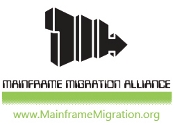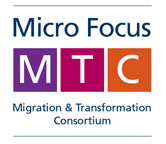Datatek, Inc.
1735 Guess Road, Suite 200
Durham, NC 27701
Email: info@datatek-net.com
Sales: sales@datatek-net.com
Web: webmaster@datatek-net.com
USA & CANADA: 800-536-4835
International: 919-416-9771
System Migration Tour :: Data General
Data General Migration Components
The following list details some of the major components that may be required for a Data General migration:
Source Code
Source code written using Data General languages (such as COBOL, PL/I, FORTRAN, and C) usually needs certain modifications so that it is compatible with the more modern compilers available on Open Systems. Datatek has a set of tools that automates the modification process. By automating the process, modifications are consistent and across-the-board and do not carry the risks associated with manual changes. Datatek also offers you the choice of converting your source code to another language via its language conversion services. For example, you can choose to convert PL/I to C.
Note: Data General assembler is always converted to another language
CLI Macros
Datatek has an automated utility that converts CLI macros to other scripting languages (e.g., Unix KornShell). Additional script customization is possible during the conversion process.
System Calls/Intrinsics
Datatek has developed a system call library that emulates the functionality of Data General system calls. COBOL programmers can continue to use the ?CBSYS interface. System call interfaces that were available in other Data General programming languages are also supported.
AOS/VS Utility Features
Although the newer operating systems of today are fast and have large feature sets, some AOS/VS functionality is not available or has poor substitutes. Datatek has developed a number of products to emulate the features of AOS/VS that you may need.
| AOS/VS Features | Datatek Replacements |
|---|---|
| QBATCH/QPRINT | Datatek/QM |
| BROWSE (file viewer) |
Browse |
| CEO | Intuitive Office |
| DG/SORT | TBAM-SORT |
| Labeled tapes, RJE, ... | Part of migration service |
| SED (text editor) |
SAID |
Database Migrations
Datatek will convert INFOS databases into TBAM databases and DG/SQL databases into Datatek/SQL databases. Corresponding database handling utilities are available.
Third-Party Integration
Applications may have been integrated with other third-party software. The migrated system may require source code changes in order to interface with different software that emulates the functionality of the Data General system.
Data Conversion
Datatek has tools that will convert Data General proprietary file formats, resolving any endian and/or data alignment issues.
Device Handling
Datatek will ensure the proper addressing and accessing of printers, terminals, scanners, and other hardware devices. Datatek has developed a number of utilities that address incompatibility in device handling: Datatek/RJE, Datatek/TM, and Datatek/Label.
Office Automation Integration
You can have your business application fully integrated with Datatek’s Intuitive Office, an office automation product. You can choose to have an Intuitive Office status line in your application screens without any coding changes. Intuitive Office also supports DG’s CEO feature of integrated applications. Intuitive Office is the obvious choice for electronic mail, document filing, and time management functions in your business.
Server Consolidation
Due to the improved performance capabilities of today’s newer hardware platforms, businesses sometimes choose to consolidate multiple Data General systems. Source code, scripting, and operating environments may need to be modified to support a consolidated architecture.
Network Architecture
Data General supported a variety of network architectures. Businesses using DG’s XODIAC network usually want to switch over to a more openly supported architecture, such as TCP/IP. Source code, scripting, and operating environments will need to be modified to support a new target network environment.
More About Data General Migrations
Data General is now a division of EMC Corporation.
Data General Information
- Data General Migration Overview
- Data General Experience
- Data General Migration Components
- AOS/VS Migration Services
- DG/SQL Migration Services
- INFOS Migration Services
- DG/UX Migration Services
Strategic Partners




